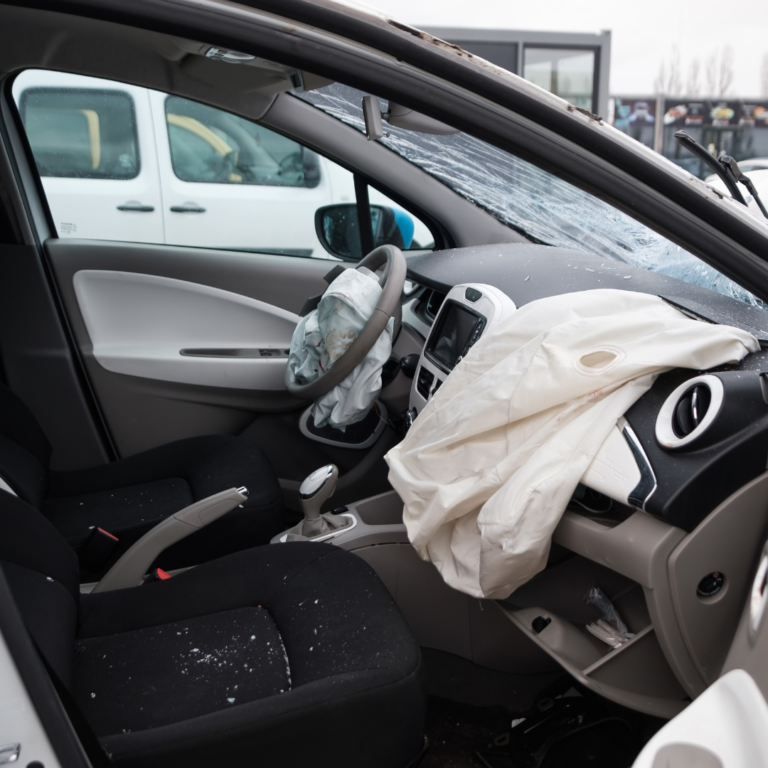General Motors Co. and Ford Motor Co., are resisting pressure from U.S. regulators
Car manufacturers, such as General Motors Co. and Ford Motor Co., are resisting pressure from U.S. regulators to carry out a massive recall of up to 52 million airbag inflators.
ARC airbags are used in vehicles from GM, Ford, Stellantis NV, Tesla Inc, Volkswagen AG, Hyundai Motor Co, BMW, Kia Corp, Maserati, Mercedes-Benz Group AG, Porsche, and Toyota Motor Corp.
Automakers argue in letters to the National Highway Traffic Safety Administration (NHTSA) that there is no conclusive evidence of defects in ARC’s components, despite reports of some inflators manufactured by ARC Automotive Inc. exploding, causing injuries and even deaths in accidents.
In May, the agency reported seven cases of airbag ruptures causing injuries, including two deaths, from 2009 to March of the previous year. Regulators suspect that welding during the manufacture of ARC inflators may have left residues in the components. During an accident, the ignition’s gas is expected to fill the bag, but if the channel is obstructed, excessive pressure could build up, potentially releasing metal fragments.
The NHTSA has urged a broad recall, estimating it could cost up to $10 billion for automakers. Despite objections from ARC and other manufacturers, the NHTSA is proceeding with steps toward a unilateral decision, with the possibility of a mandatory action after the final review, although ARC could challenge the decision in court.

GM claimed to have voluntarily recalled over 1 million ARC airbag inflators, stating that the NHTSA’s recall could impact up to 15% of the over 300 million registered motor vehicles in the United States. Similarly, Ford expressed concerns about the scope of the recall, affecting over 2 million vehicles manufactured by the company between 2005 and 2017.
ARC Automotive Inc. asserts cooperation with the NHTSA’s investigation since 2015 and, in its online response on December 20, strongly disagrees with the need for this extensive recall.
The NHTSA aims to prevent a repeat of the Takata airbag scenario from over a decade ago, resulting in the largest automobile recall in U.S. history. GM and Ford were compelled to allocate $1.1 billion and $600 million, respectively, in repair costs related to Takata in the fourth quarter of 2020. The agency is expected to enforce a recall unless there is negotiation or an agreement in the coming weeks.

The story of the first car race in Paris: a historic hit in 1894
Paris stands not only as a cultural and artistic epicenter but also as a pioneer in car racing In the history of automotive racing, Paris

Top states for driving in the United States in 2024
A WalletHub study compared all 50 states to determine the best driving conditions Road safety and quality are central concerns for drivers. And while the

Briefs: marijuana reclassification, vehicle fees, and climate grants
The trucking industry goes through new legislation, taxes and subsidies Questions about the proposed reclassification of marijuana The Owner-Operator Independent Drivers Association (OOIDA) supports the

Impact of traffic pollution: study reveals increase in blood pressure
A study from the University of Washington in Seattle reveals that the main cause of significant increases in blood pressure might be traffic-related gasses A

The benefits and careers of a Commercial Driver’s License
Having a CDL opens multiple doors within the trucking and transportation industry Having a Commercial Driver’s License (CDL) opens multiple doors within the trucking industry,

Sharing the road with a truck: steps to ensure your safety
Caution around blind spots and anticipating truck maneuvers are essential to ensuring everyone’s safety Truck drivers face significant challenges on the road due to their
